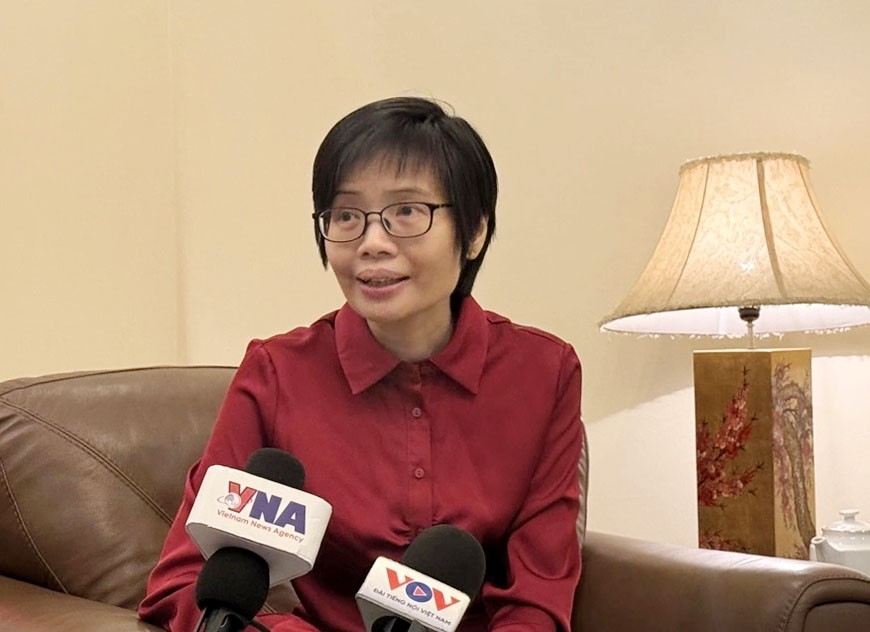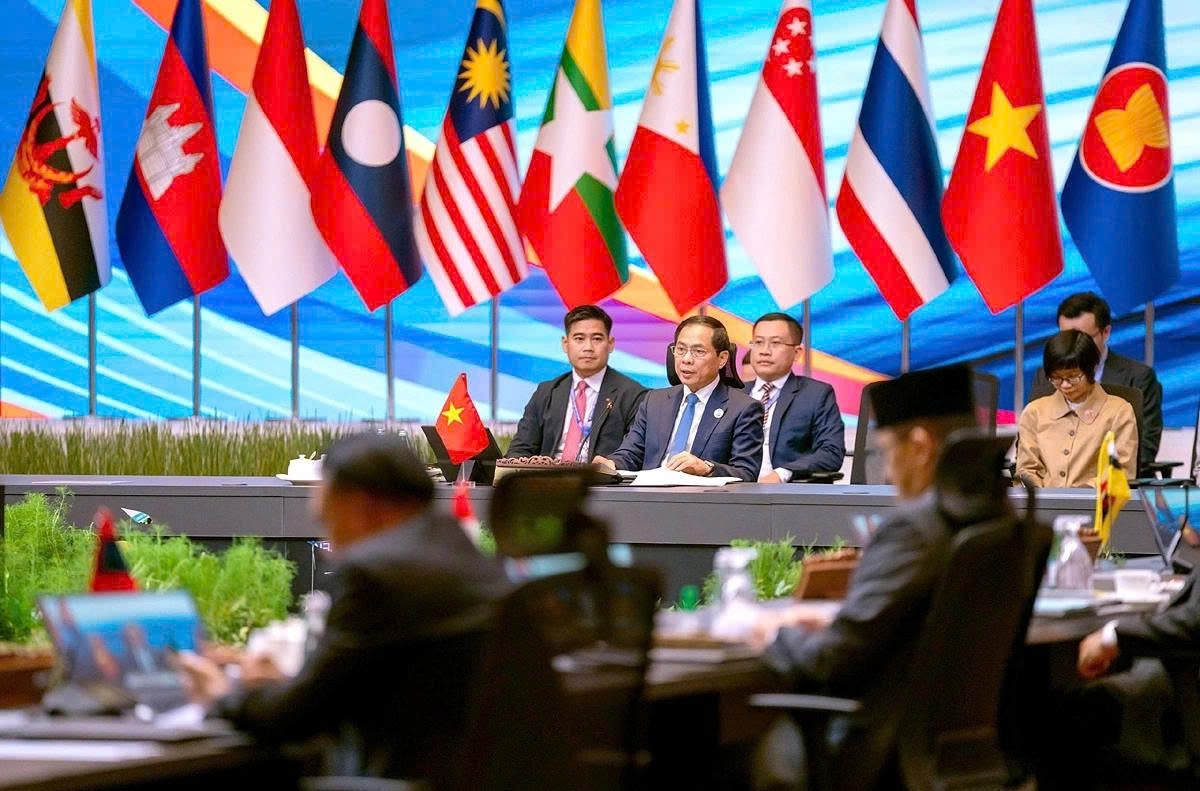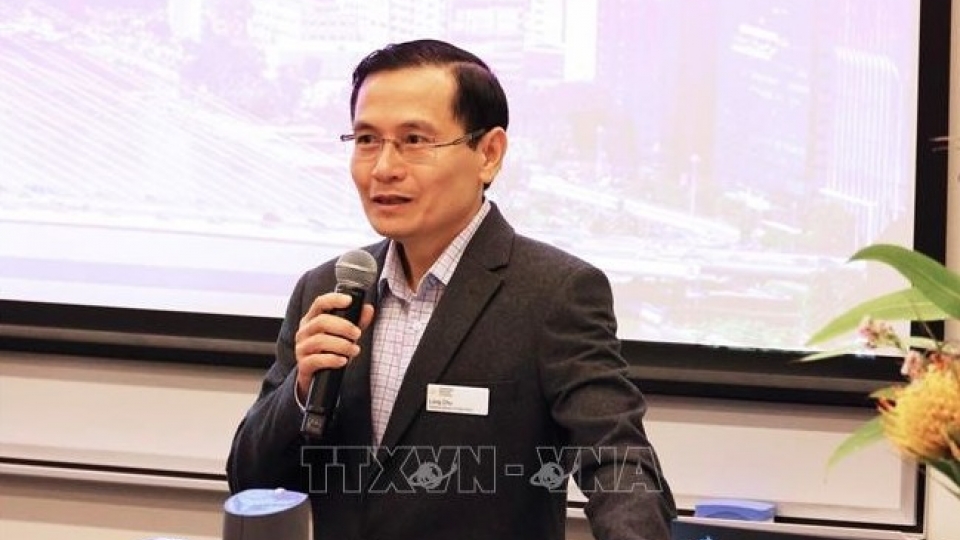30 years on, Vietnam emerges as a major actor in ASEAN’s future
VOV.VN - Thirty years after joining the Association of Southeast Asian Nations (ASEAN), Vietnam has progressed from a learning participant to a major actor, helping to shape the bloc’s development path, according to Ambassador Ton Thi Ngoc Huong, Head of the Permanent Mission of Vietnam to ASEAN.

Ambassador Huong, in a recent interview granted to Vietnam News Agency, emphasised that accession to ASEAN on July 28, 1995 marked a turning point in the country’s regional and global integration. Over the past three decades, Vietnam has progressed from a newcomer to an active contributor and architect of ASEAN’s cohesion, resilience, and strategic adaptability.
The country has played a pivotal role in strengthening ASEAN unity, bridging internal differences, and fostering stronger external partnerships, helping to maintain the grouping’s centrality in the regional architecture. Its proactive efforts contributed significantly to the realisation of the ASEAN-10, bringing all Southeast Asian nations under one roof by 1999.
Highlighting Vietnam’s major contributions to ASEAN, the diplomat recalled that just three years after joining the bloc, Vietnam hosted the sixth ASEAN Summit in 1998, steering ASEAN through the 1997 Asian financial crisis with the adoption of the Hanoi Action Plan. As Chair of the ASEAN Standing Committee in 2000–2001, the country advanced the Initiative for ASEAN Integration (IAI) to narrow the development gap.
As ASEAN Chair again in 2010, the country helped expand regional structures with the East Asia Summit (EAS) and the ASEAN Defence Ministers’ Meeting Plus (ADMM+). During its 2020 ASEAN Chairmanship, amid the global COVID-19 pandemic, Vietnam led a coordinated response through initiatives such as the ASEAN COVID-19 Response Fund, a regional medical stockpile, and the Comprehensive Recovery Framework.
Vietnam has also played an instrumental role in fostering ASEAN’s relations with external partners. It has served as country coordinator for ties with China, the European Union, India, Japan, the Republic of Korea, New Zealand, and the UK. Currently, it is coordinating two partnerships, namely ASEAN–UK and ASEAN–New Zealand for 2024–2027.
By working together to shape ASEAN's development path, the diplomat said, Vietnam has made significant contributions to defining goals and forming major policy decisions of ASEAN, including key documents such as the ASEAN Vision 2020, the ASEAN Charter, the ASEAN Community Vision 2025 and 2045, as well as blueprints on connectivity and narrowing the development gap within ASEAN.
According to her, the ASEAN membership has created vast opportunities for Vietnam’s economic growth. Two-way trade between Vietnam and ASEAN reached US$83.6 billion in 2024, nearly 25 times higher than in 1995. ASEAN is Vietnam’s fourth largest export and third largest import market. Participation in regional free trade agreements (FTAs), including the Regional Comprehensive Economic Partnership (RCEP), has enhanced Vietnam’s global market access and investment inflows.
Vietnamese citizens have benefitted directly from ASEAN cooperation in areas such as education, health care, entrepreneurship, green and digital transformation, sustainable agriculture, climate action, and disaster risk reduction.

Looking toward 2045 when Vietnam marks its 100th founding anniversary, the country reaffirms its commitment to an active, responsible, and forward-looking ASEAN membership, harmonising national interests with the broader regional agenda.
Vietnam will continue to harness global megatrends such as digital transformation, innovation, green growth, and sustainable infrastructure, while reinforcing its position in resilient regional supply chains and contributing to ASEAN’s dynamic and inclusive growth.
As ASEAN is projected to become the world’s 4th largest economy by 2030, Vietnam is determined to play a leading role in shaping this shared future.
ASEAN has also provided a dynamic multilateral environment for Vietnam to enhance its international integration capacity, develop diplomatic expertise, and broaden global partnerships with major powers and key regional actors.
As ASEAN transitions into a new development phase of implementing the ASEAN Community Vision 2045, the ambassador said, Vietnam is taking on key leadership roles. The country is leading efforts to build the IAI Work Plan V (2026–2030), aligning it with ASEAN Vision 2045 goals to promote inclusive, sustainable development and reduce regional disparities.
As country coordinator for ASEAN-New Zealand Relations for 2024-2027, it is preparing for the 50th anniversary of ASEAN–New Zealand relations in 2025, aiming to elevate the partnership to a Comprehensive Strategic Partnership and adopt a new Action Plan for 2026–2030.
As country coordinator for ASEAN–UK Relations for 2026–2030, it is stepping up the implementation of the 2022-2026 Action Plan, now at a 95% implementation rate, while preparing for the 5th anniversary of the ASEAN–UK Dialogue Partnership in 2026 and formulating the next Action Plan for 2027–2031.
Fulfilling these tasks amid numerous challenges to multilateral cooperation will be a practical and meaningful contribution by Vietnam to ASEAN at a crucial turning point thereby helping to promote regional integration, uphold ASEAN’s centrality, and enhance its image and position, said the ambassador.





